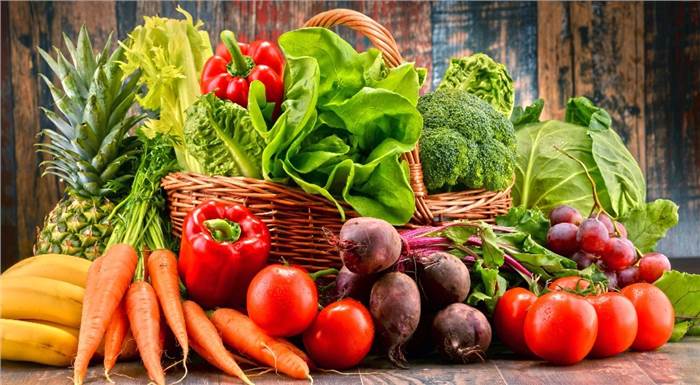NMR-based Fruits and Vegetables Analysis
Nuclear magnetic resonance (NMR) technology has been widely used in the quality analysis of fruits and vegetables. Fruits and vegetables contain a lot of water. The distribution, state, and migration of water in fruits and vegetables continuously affect their metabolism and microbial growth, and have a significant impact on their appearance, freshness, degree of decay, and processing and storage characteristics.

As an expert in the field of nuclear magnetic resonance, Creative Biostructure provides customers with analytical services based on 1H NMR technology for the internal moisture, metabolic components, lesions, and other aspects of fruits and vegetables. In order to determine the freshness, maturity, and degree of corruption of fruits and vegetables, it has guiding significance for the storage and deep processing of fruits and vegetables to improve the added value of fruits.
Our Technology and Analytical Methods
| Research objective | NMR method | Multivariate analysis |
|---|---|---|
| Antioxidant activity test of dehydrated fruits and vegetables | 1H NMR | ANOVA, PCA |
| Changes of metabolites during fruit senescence after picking | 1H NMR, COSY, JRES, HSQC | PCA |
| Identification of authenticity of fruits | 1H NMR | local outlier factor |
| Distinguish between organic fruits and vegetables and traditional fruits and vegetables | 1H NMR | PCA, LDA |
| Ground-based sources of fruits and vegetables | 1H NMR | PCA, PLS-DA |
Analysis of Internal Moisture and Metabolic Components in Fruits and Vegetables
| Our strategy | Information available |
|---|---|
| Determination of the relaxation times T1 and T2 of the H nucleus | Distinguish between free water and crystalline water in fruits, as well as immovable water and bound water. |
| MRI technology | According to the level of T1 and T2, the fluidity of water molecules, the degree of binding to the substrate, and the change of organic components can be determined. |
- Moisture analysis
Analyze the moisture changes of fruits stored at room temperature.
Analyze the reduction of free water as storage time increases.
Analyze the direction of movement of free water during storage.
Hydrodynamic analysis of fruit during ripening.
Analyze the relationship between drying temperature and moisture distribution in fruit during convective drying.
- Metabolomic analysis
Effects of solar radiation and temperature on the metabolic components of fruits in different growing seasons.
Changes in cellulose, hemicellulose, and pectin polysaccharides on the cell wall during fruit and vegetable maturation.
The relationship between softening of fruits and vegetables during maturation and changes in the composition, solubility, and structure of pectin polysaccharides on the cell wall.
Determine the origin and variety of fruit through the study of metabolic components.
Non-Destructive Detection of Fruits Using Nuclear Magnetic Resonance Technology
- Test the internal quality and maturity of fruits
For example, when an apple undergoes browning, the amount of metabolites such as pyruvic acid, citric acid, fumaric acid, alanine, chlorogenic acid, methanol, ethanol, and acetaldehyde severely changes.
- Identify internal defects and damages in fruits
According to the distribution of water in fruits and vegetables, using nuclear magnetic resonance imaging technology can clearly distinguish between normal and diseased tissues. Magnetic resonance imaging technology is used. We can help customers successfully identify moths and intact apples.
Creative Biostructure is committed to providing high-quality NMR analysis services to advance the life sciences fields. If you have any questions or needs, please contact us and our customer service staff will help you the first time.
Ordering Process
